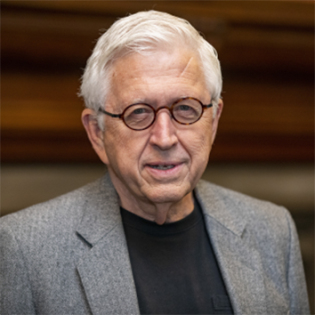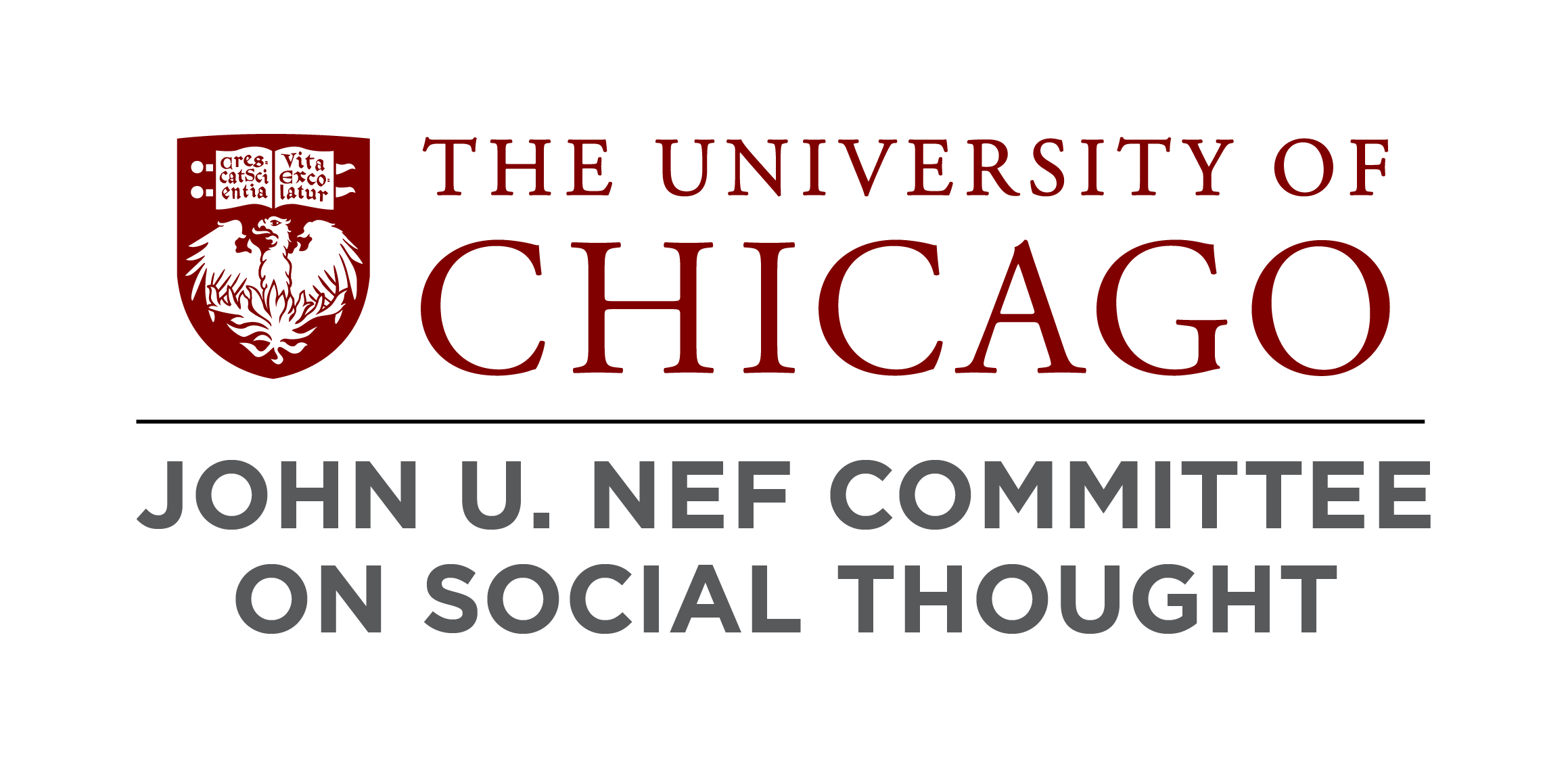2019 SSD Diploma and Hooding Ceremony

Evelyn Stefansson Nef Distinguished Service Professor in the Committee on Social Thought, the Department of Philosophy, and the College
It is my great privilege to deliver these brief remarks on the occasion of your receiving your graduate degrees from the University of Chicago. It is a special honor to have been asked to be part of this ceremony because for many of us these events are signal occurrences, milestones that we remember for the rest of our lives and I now have the good fortune to be part of that memory. And it is a special pleasure to conform to the first traditional duty at such an event: on the part of the faculty of the Social Science Division, to congratulate you most heartily on your accomplishment. You have earned by your hard work and talent a graduate degree from one of the world’s great universities, and although it may sound very odd to put it this way, one of the most satisfying aspects of this accomplishment is that you will always, forever afterwards, have earned such a degree. It is now a permanent part of your life resumé, a mark of distinction that only 1.5% of Americans have achieved and that no one can remove or question or depreciate. You are indeed to be most heartily congratulated, as are those loved ones close to you who have supported you throughout the long process of your education.
You have earned a graduate degree in the Social Sciences Division and are being addressed by someone whose academic home is philosophy, and who has published mainly on 18th, 19th and 20th century German philosophy, and you may indeed be wondering what possible sense that could make. I think I can make a point about the Division from which you have graduated by explaining this odd fact. One sort of answer to that question is that my proper academic home here at the Chicago is the Social Sciences Division. Although I am also a member of Chicago’s philosophy department, this is the Division that recruited me here in 1991 and hired me in 1992. But that fact of course just adds to the mystery. The disciplinary explanation of this is not much more illuminating. I joined a PhD granting department when I came here, The Committee on Social Thought, and for twenty-five of my twenty-seven years here, I have served as its chair. It is a department, along with all the departments that have bestowed on you your degrees, in the Social Science Division. Still, I know, not very illuminating. There is no other university in the world that has a department called, or anything like, the Committee on Social Thought. The name itself can seem slightly Orwellian, like something out of 1984, as if a companion to the Central Party Committee on Private Thought, or the Committee on Public Thought, or even The Committee on What Not To Think. We get a bit closer to some explanation of what I am doing here at this podium by noting that the Committee was founded seventy-eight years ago, in 1941, by a historian, John U. Nef, an economist, Frank Knight, an anthropologist, Robert Redfield, and a legal scholar who was also the president of the university, Robert Maynard Hutchins. So, an obvious social science profile, then. They had become convinced that graduate education was beginning to encourage very narrow disciplinary specialization so early in graduate careers, that students were often, in their experience, unable to understand why the very specific problems they had begun to research were problems at all, or why they might be significant. They had lost all sense of any wider context within which such issues might be better understood and, especially, they had so little sense of how neighboring disciplines might treat their problem, that they were cut off from the light such differing approaches might usefully shed on what they were doing. As they would put it, they were being trained, but not educated. So they thought there ought to be at least one department in the Division where the early education in the program would expose students to great masterpieces of other disciplines as well as their own, and they conceived those early years as work with a very diverse faculty on classic books in literature, philosophy, the history of economics, theology, social theory, intellectual and social history, and that these texts should range over both antiquity and modernity, and should not be limited to the Western canon alone. These founders and subsequent faculty had no objections to concentrated research in the disciplines and specialized dissertations, but they thought it would be a good idea to have at least one department in the Division that had this kind of structure. As a measure of the success of their idea, over the years the faculty of the Committee have won four Nobel prizes, two in economics, Friedrick von Hayek and Robert Fogel, and two in literature, Saul Bellow and John Coetzee, and there have always been prominent social scientists, like Hannah Arendt in political theory and intellectual history, François Furet in history, and Paul Friedrich in anthropology. And of course philosophers.
And so finally the name. When the four founders proposed this department in their Division, the Social Science Division, they did so during a period when ad hoc faculty collaboration was encouraged and common, and organized in a system of ad hoc “committees.” But the prestige of the founders and the presence of the president, Hutchins, gave them sufficient status to hire their own faculty from outside and grant the PhD. But, as John Nef explains in his autobiography, the Dean at the time kept rejecting their proposed names for their committee as not sounding “social science” enough. On the phone with the anthropologist Redfield, Nef expressed his frustration and Redfield suggested, “How about the Committee on Social Thought?” Nef responded, “What in the world does that mean?” To which Redfield responded, “Nothing, but the Dean will be afraid it is something he doesn’t understand and won’t be willing to ask about.” Redfield was right. The name was accepted immediately.
Now I tell this story to explain not just to explain my presence, but to explain something about the Division. We should first realize that the disciplines as we now know them in the modern research university emerged between 1870 and 1915, and were the result of a number of different and largely contingent factors. That is, the disciplines are not natural kinds; they are historical creations; they are much more like opera and tennis, than they are perennially present human practices such as politics or perhaps, sadly, war. Their emergence was connected with a concomitant need for the professionalization of differing claims to knowledge. In the United States, this professionalization was partly required by our culture of democratic egalitarianism. You could not and should not simply inherit or have arbitrarily bestowed on you the privilege of speaking with academic authority. You had to earn that right as you all have; you are now certified experts, and in principle anybody who satisfied the criteria could earn that right. The right should be open to all. This meant that the disciplines had to be self-regulating professions, with the authority to credential or refuse to credential whomever it wished, according to whatever publicly stated criteria the experts in the profession decreed were relevant. But all this means that these divisional lines are forever subject to change and innovation and a university unwilling to experiment creatively with such divisions and so to encourage faculty, as we say so often here at Chicago, to follow their ideas wherever they lead, regardless of disciplines, would soon become ossified, and eventually irrelevant. So after a while, the Committee began to represent to the university at large its own image of itself, its own core intellectual values.
This fact, that the Committee was founded and has endured so long, is itself a remarkable, distinguishing feature of our university. At every other university that I have been associated with, and at every university where my close friends work, this would not have been possible. The Committee only hires senior faculty, and at all these other universities it would be inevitable that for faculty in other departments, all of whom relentlessly compete for positions, there would be considerable sustained outrage that not only was the Committee hiring in “their” disciplines, but that resources in that division were being used not only to hire philosophers and psychoanalysts, but poets Like Mark Strand and our current Rosanna Warren, and novelists like John Coetzee. In all the twenty-five years I have been chair, at frequent chair and university meetings, I have never heard the slightest complaint like this, or even a hint of such a complaint. I believe this tells you something quite important about the Division you have graduated from, and about its commitment to innovation, creativity, experimentation and its lack of complacency.
But we are not here to congratulate the Division, but to congratulate you, and to express our gratitude to you. As I hear all the time from my colleagues, so much of our own research and indeed our own lives have been so enriched by being able to work with such a talented, dedicated, and, to mention a virtue not frequently cited enough as an academic virtue, courageous students as all of you have proven to be. There is no doubt that universities and colleges will look very different in twenty years than they do today, as they have looked since the second world war, but my colleagues and I have complete confidence that you are all up to these challenges and to any other you will face in any other institution. So once again, thank you, good fortune ahead, and the warmest of congratulations.
 THE UNIVERSITY OF CHICAGO
THE UNIVERSITY OF CHICAGO

